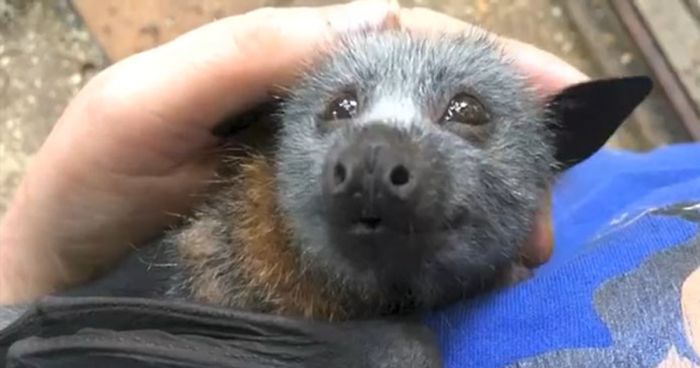
Video Shows Baby Bat Making Adorable Heart-Melting Squeaks While Being Petted
While the whole world is going totally crazy and it seems like nothing makes sense half of the time, we all could use some cute animal content to lift our spirits up. Luckily, today we managed to find something extremely special for this important mission.
Let us introduce you to Jeddah—an adorable juvenile grey-headed flying fox. The whole Internet went totally nuts when they saw this video that was uploaded to a YouTube channel called Megabattie. Now stop everything you’re doing and watch the video. Seriously. Spoiler alert—it might be the cutest thing you’ve ever seen.
By the way, Bored Panda had a chance to talk to the woman who rescued the little Jeddah, so make sure to scroll down for a full interview!
Don’t forget to turn the sound on—you’re welcome
Jeddah is a baby rescue bat who loves being tickled, petted, and scratched. This little cutie has been through a lot in his life, has suffered some serious injuries, and couldn’t be released into the wild because of that which is why he’s in the loving hands of a licensed bat carer.
“Jeddah was an orphan flying fox found on the ground as a tiny baby near a bat camp, it was unsure why he was there but the vet thought he may have had a concussion as he didn’t achieve the normal milestones expected during the hand-raising process. Neurological problems can take weeks to resolve so he was hand raised to see how he fared,” the animal rescuer named Mandi Griffith explained.
Just look at his eyes for a sec—so freaking adorable!
Image credits: Megabattie
“Bats generally have one baby a year between October to January. Jeddah was a very vocal baby, making adorable squeaking noises as he enjoyed his warm milk, or was groomed. There was nothing he liked more than being tucked inside my jacket as I worked cleaning the aviaries, cleaning food buckets, and tending to the other bats. Occasionally he’d extend his little thumb and draw my hand to his head so I could tickle his ears and he would squeak like crazy in ecstasy,” the rescuer told Bored Panda.
Image credits: Megabattie
“At 13 weeks of age, baby bats are placed with other hand raised orphans in a baby bat creche. Here, bats learn they are flying foxes, and not a furless upside human. Jeddah was only 12 weeks old and not yet ready for proper creche, but he would hang out in baby bat kindy whilst I was at work. After 5 weeks in a creche, baby bats go from adorable little melting fuzzballs like Jeddah to confident, gregarious, colony animals desperate to get out into the wild and fly free. For this reason, bats are very rewarding to rehabilitate and release but don’t make good pets as they need colony life for their mental health, and to fly to keep them healthy. Unfortunately for Jeddah, whilst he looked and acted like his peers, he never outgrew his baby temperament, so he was passed to a licensed wildlife educator, where he acts as an adorable ambassador for his species,” the animal rescuer explained.
Image credits: Megabattie
“I particularly loved the yawny and sniffy bits about halfway through. And I love the curl of the tongue as he yawns,” rescuer comments. And we fully agree—a truly golden content right here.
Image credits: Megabattie
The animal rescuer Mandi Griffith loves bats quite a bit. “Bats are curious, intelligent, gregarious and hilarious as they each have their own personality. After a period of quarantine, they can be housed together, and when they have overcome their immediate fear of the carer, they allow themselves to be nursed with little resistance. When released they easily join the local bat colony but often will return to the release site for a snack until they are ready to go for good. They are really important to the environment,” the rescuer told Bored Panda.
Jeddah also adores being tickled!
There were some Internet users who became quite concerned after watching these videos since they assumed that the squeaks indicate that the little guy is terrified. “There have been suggestions that this bat is terrified and the squeaks are not cute. This bat is in bliss and is able to get away from the carer at any time. He is choosing to be stroked. He solicits attention,” the carer explained in the description of one of the videos.
Image credits: Megabattie
Just look at his blissful little face!
Image credits: Megabattie
Mandi has been rescuing animals for 18 years now. “18 years ago, I joined a local wildlife rescue group and did a specialist species training course to rehabilitate bats. Carers have to be licensed to rehabilitate wildlife and it’s important to have guidance from other more experienced carers when first starting to care for injured and orphaned wildlife. Bats are quite complex individuals with definite social and housing requirements so it’s crucial to have a good mentor to make sure the animals get the best care possible,” the carer told Bored Panda.
And it looks like little Jeddah really loves Firewheel blossoms as well
When asked, what kind of animals she usually rescues, Mandi said this: “I rescue pretty much anything fluffy—bats, gliders, possums, bandicoots, macropods, native rodents, wombats, and small birds. I’m not set up for reptile care so whilst I might house a lizard, turtle, or snake overnight, they are best cared for by people with the correct facilities and expertise.”
Look at that little tongue!
“Bats are a keystone species; meaning without bats, the fabulous Australian landscape would suffer. As bats fly great distances to forage (sometimes up to 50km a night), they are the main pollinators of the huge eucalyptus trees that stabilize the landscape. Without these native feed trees, other species, such as the iconic koala, would not survive. Bats are semi-nomadic, moving from their chosen location (called a bat camp) to another as they follow the flowering trees. Years ago, Aboriginal people would take note as the bats left their camp as they knew the bats were following the seasonal flowering. They would take this as an indicator they should also move to the better ground as the seasons change,” Mandi explains.
Image credits: Megabattie
Image credits: Megabattie
“Sadly, with urbanization and loss of habitat, many of the camps have been destroyed, so bats are unable to find food sources. Bats arrive at a former campsite to find their rainforest homes replaced by suburban homes. In those suburban back gardens are fruit trees and the starving bats attempt to forage, getting caught in fruit tree netting, and on barbed wire fences. They are mistakenly thought of as pests, rather than the vital species they are,” adds the rescuer Mandi Griffith.
The Internet seems to love this little guy quite a bit
54Kviews
Share on FacebookHow could anyone dislike this little qutie? Bats are missunderstod aand importent for the environment, bats needs more protection! All of them, even the ones not concidered cute.
How could anyone dislike this little qutie? Bats are missunderstod aand importent for the environment, bats needs more protection! All of them, even the ones not concidered cute.
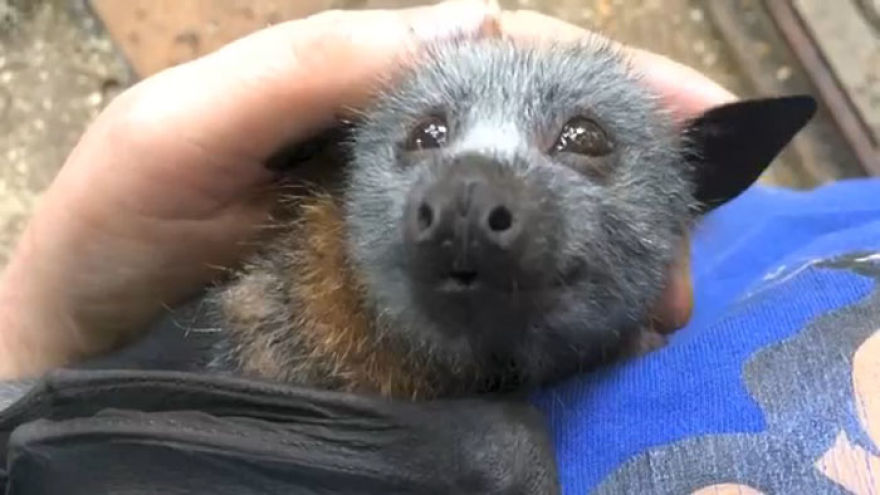
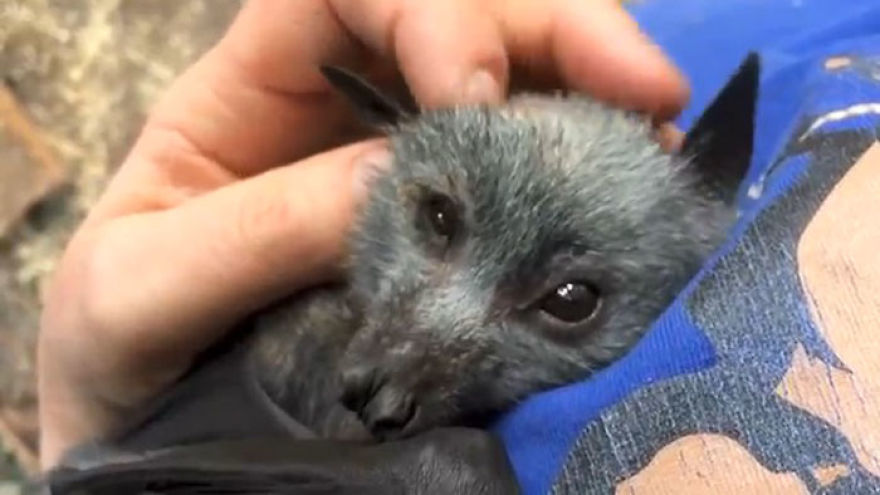
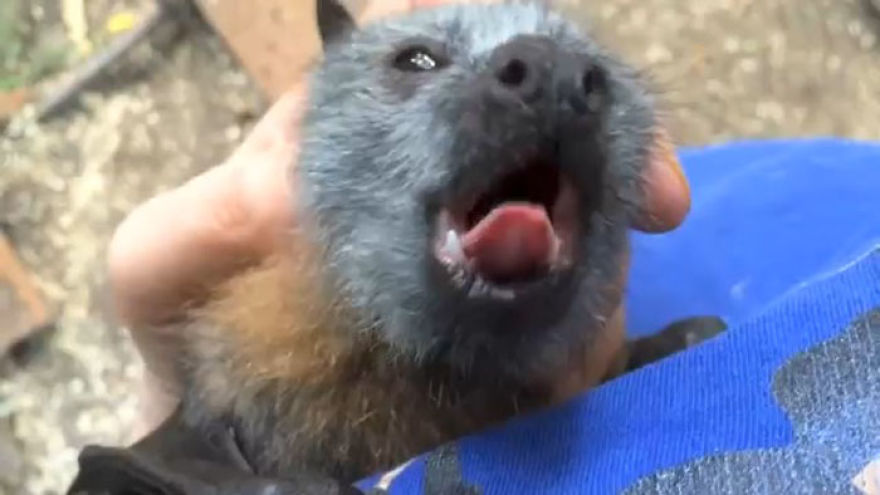
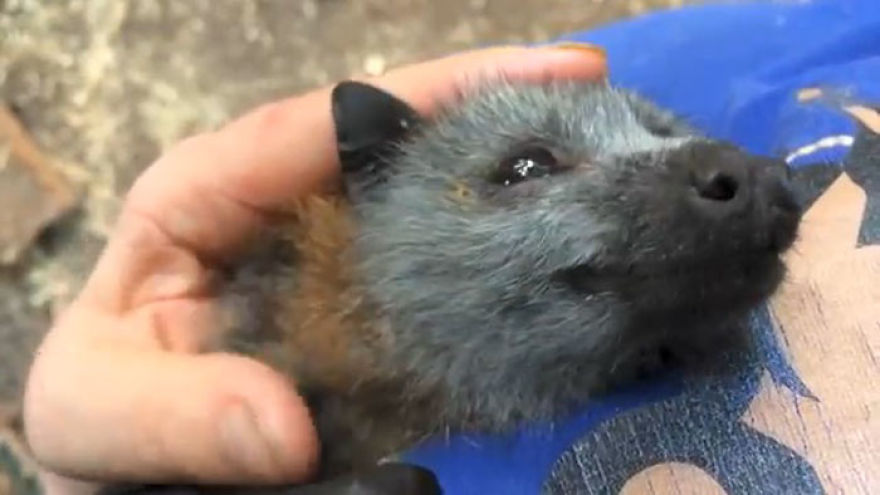
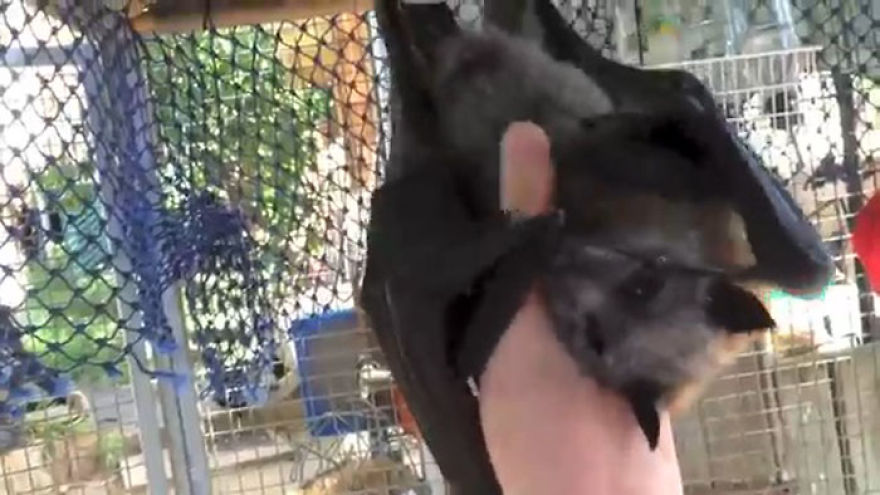
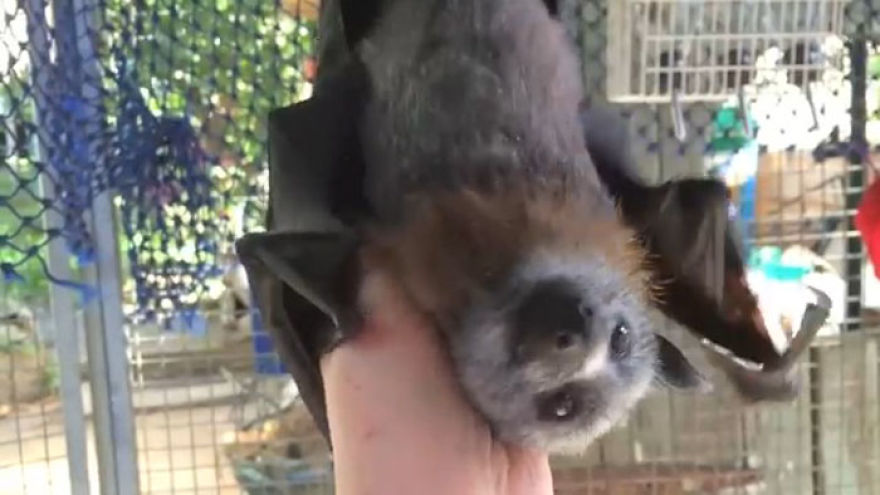
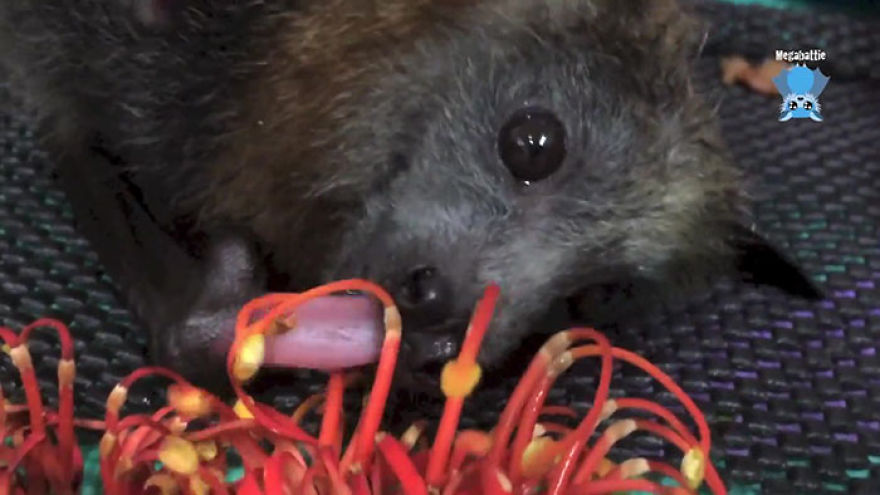
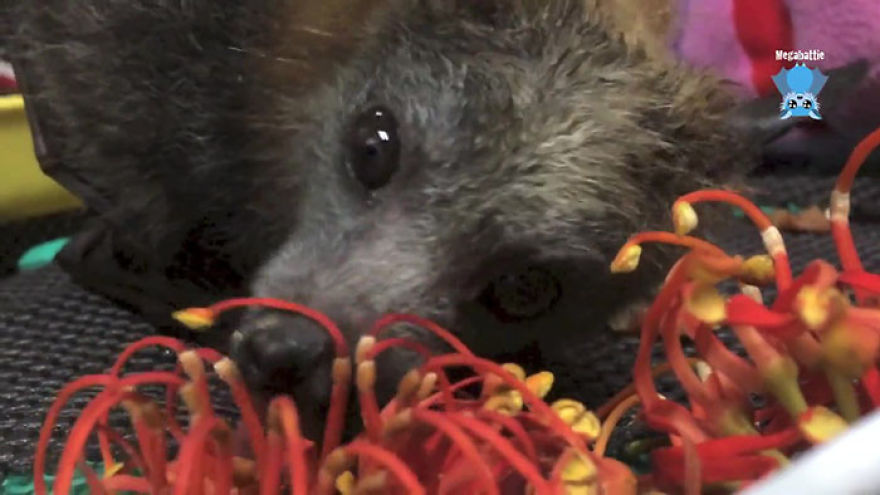










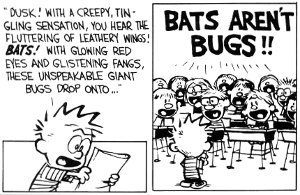

358
62